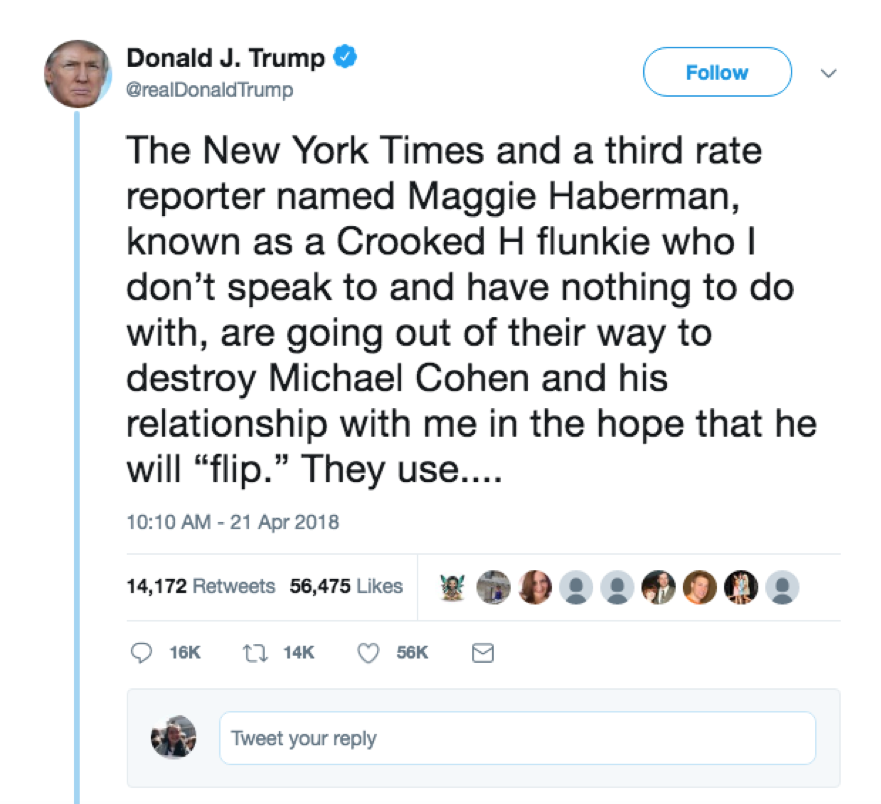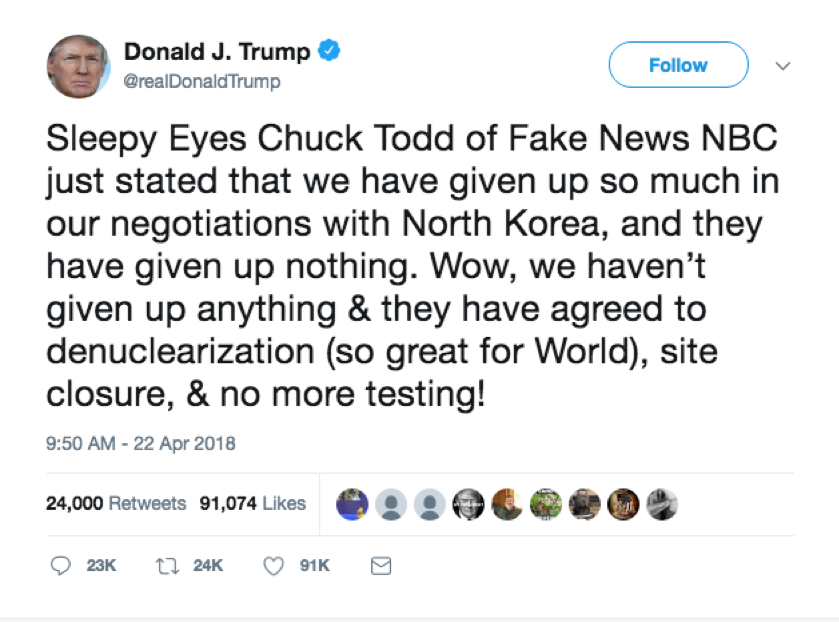US — #WeeklyAddress: April 16–22: FBI whistleblower pleads guilty to leaking classified information
Below are the most notable incidents regarding threats to press freedom in the US during the week of April 16-22:
FBI whistleblower pleads guilty to leaking classified information
Terry Albury, a former Federal Bureau of Investigation (FBI) agent, pleaded guilty to two felony violations of the Espionage Act in federal court on April 17. While prosecutors are asking for Albury to be sentenced to 46-57 months in prison, the defense is seeking a 37-46 month sentence. Last month, the Department of Justice (DOJ) indicted Albury for leaking classified information to a national media organization and retaining that information without permission. Though the media outlet was not specified in the federal search warrants, The Intercept published a story that included a set of classified FBI guidelines about the agency’s use of informants that correlated with the dates of Albury’s leak. Albury’s lawyers said in a statement that his actions were “an act of conscience” to raise awareness about racism within the FBI and towards minority communities, and one of the articles he leaked reveals the FBI’s secret guidelines for surveilling journalists. Betsy Reed, editor-in-chief of The Intercept, released a statement on April 17 saying that the news outlet will not reveal anonymous sources, but the DOJ’s “use of the Espionage Act to prosecute whistleblowers seeking to shed light on matters of vital public concern is an outrage.” Albury is the second whistleblower to be charged under the Espionage Act during Trump’s presidency, following the indictment of former NSA contractor Reality Winner in June 2017.
Memos show that Trump proposed the idea of “jailing journalists” to get them to talk
One of former FBI Director James Comey’s storied memos details a conversation he had with President Donald Trump in February 2017, when Trump suggested the DOJ jail journalists for reporting on classified information. The details of this meeting were first reported in May 2017 by The New York Times when one of Comey’s associates read the memo to a Times reporter. On April 19, the memos were widely published after the DOJ released copies to members of congress. In a memo dated February 14, 2017, Comey wrote: “The president then wrapped up our conversation by returning to the issue of finding leakers. I said something about the value of putting a head on a pike as a message. He replied by saying it may involve putting reporters in jail. ‘They spend a couple days in jail, make a new friend, and they are ready to talk.’”
Trump’s disdain for US media has been illustrated through his verbal attacks on reporters and media outlets since even before he won the 2016 presidential election. In January, Trump released his “fake news awards” that targeted CNN, The Washington Post, and several other media outlets.
Democratic National Committee files lawsuit against WikiLeaks
The Democratic National Committee (DNC) filed a lawsuit on April 20 against Donald Trump’s presidential campaign, the Russian government, and other entities it says were involved in a plot to tilt the results of the 2016 presidential election by hacking DNC email servers and divulging its contents. The DNC also sued WikiLeaks for publishing the hacked information, saying it is liable for the damages it caused when it “willfully and intentionally disclosed” DNC communications. However, it is unknown whether WikiLeaks was involved or knew about the hacking in advance. The lawsuit against WikiLeaks could set a dangerous precedent, showing that any media outlet that publishes stolen information could be sued by the outlet or person that they are writing about.
The DOJ under President Barack Obama attempted to prosecute WikiLeaks in 2010 for publishing State Department communications and classified information from the Iraq and Afghanistan wars, but ultimately didn’t move forward with its case.
Startup company creates shooting game that targets reporter
Theranos, a startup blood testing company, created a video game targeting The Wall Street Journal (WSJ) reporter John Carreyrou that was leaked on April 19. The leaked video shows Theranos employees playing the game, in which players can shoot at images of Carreyrou’s face. Theranos’ antagonism toward Carreyrou follows a series of articles about the company he published starting in 2015 revealing ways Theranos was misleading the public about its blood-testing technology. Prior to this, Theranos threatened WSJ with a lawsuit shortly after Carreyrou published a now-famous October 2015 article discrediting the company’s technology, and Vanity Fair reported Theranos employees once chanted “F*** you, Carreyrou” during an all-staff meeting. Displays of violence and verbal assaults against journalists are increasingly common in the United States, and have even come from the Oval Office. In July, President Trump re-tweeted a video of himself wrestling and violently punching a figure whose head was replaced by the CNN logo.
Co-owner of Sinclair donates to Montana congressman who assaulted reporter
Robert E. Smith, whose family owns Sinclair Broadcasting Group, has donated more than $10,000 to Montana Congressman Greg Gianforte who body-slammed The Guardian journalist Ben Jacobs on the eve of his election last year. The Guardian reported on April 17 that Smith gave a $5,400 campaign contribution to Gianforte last month and the same amount in 2017. He also donated $5,000 to Donald Trump’s presidential campaign. Smith did not disclose his involvement with Sinclair when making the donation, stating that he was self-employed at the time of the March donation and retired when he donated last year. Frederick Smith, vice-president and director at Sinclair, donated $1,000 to Gianforte the day after he assaulted Jacobs. Sinclair, the largest owner of local news channels in the country, has been under severe criticism for its recent anti “fake news” promos that appear to align with President Trump’s anti-media rhetoric. The promos show dozens of news anchors from company-owned local TV stations reciting an identical speech criticizing “biased” reporting in national media.
NY police union attempts to block BuzzFeed from publishing NYPD records
New York’s largest police union demanded the New York Police Department (NYPD) take legal action against online media outlet BuzzFeed to stop it from publishing police disciplinary records. The Patrolmen’s Benevolent Association (PBA) sent a letter on April 11 to Police Commissioner James O’Neill asking the NYPD to stop the media outlet from publishing a database of 1,800 secret disciplinary records, which includes allegations of misconduct and officers’ names. “As he has in the past, Mr. Lynch is accusing those who shine a light on bad behavior in the NYPD of stoking violence,” BuzzFeed spokesman Matt Mittenthal said in a statement. The NYPD did not pursue an injunction against BuzzFeed, which published its database on April 16. In the past, the NYPD released this data to the public but hasn’t done so since 2016. This is not the first time this year that PBA has attempted to prevent information of public interest from being released; in January, the police union attempted to block the release of body-cam footage of three police-related shootings. BuzzFeed has been criticized extensively by the Trump administration. Trump’s lawyer Michael Cohen filed a defamation lawsuit against the news outlet in early January over the Trump-Russia dossier that BuzzFeed published, but dropped the lawsuit on April 17.
Trump goes on a Twitter rampage against the media
President Trump targeted The New York Times reporter Maggie Haberman in a series of tweets on April 21, calling her “a third rate reporter” who is part of the “dishonest media.”

In his tweets Trump refers to an April 20 article written by Haberman, along with two other Times reporters, Sharon LaFraniere and Danny Hakim. The president attempted to discredit the media outlet by calling the sources mentioned in the article “non-existent.” The article stated that Trump’s lawyer Michael Cohen has lessened his loyalty toward the president while he continues to face a federal criminal investigation over his business deals. The New York Times responded to Trump’s tweets: “We are extremely proud of @maggieNYT, who is a part of a team that just won a Pulitzer Prize. We stand by our story and our reporting.”
Over the weekend, Trump also used Twitter to express his frustration with The Washington Post and NBC anchor Chuck Todd. Similar to his tweets about Haberman, Trump attempted to discredit The Washington Post by claiming that the sources they used did not exist, and described Todd as “Sleepy Eyes”—an insult he has used to describe the news anchor since 2011—in another tweet.
President Trump frequently uses social media to discredit multiple news outlets by calling their reporting “fake news.”

The United States ranks 43rd out of 180 countries in RSF's 2017 World Press Freedom Index after falling 2 places in the last year.
For the latest updates, follow RSF on twitter @RSF_en.



